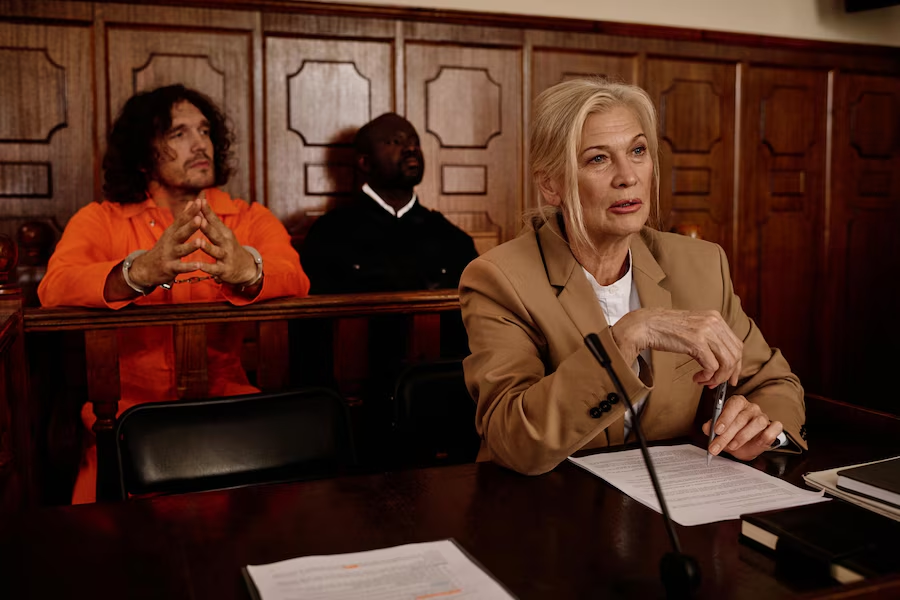Navigating the legal system can be an overwhelming and complex process, especially when dealing with the intricacies of criminal appeals. In Virginia, the path to justice often involves seeking the expertise of a skilled criminal appeal lawyer. This comprehensive guide aims to provide an in-depth understanding of the role of criminal appeal lawyers, the appeal process in Virginia, and how to choose the right attorney to represent you or your loved one in a criminal appeal case.
Understanding Criminal Appeals
A criminal appeal is a legal process where a defendant seeks to challenge a conviction or sentence handed down by a trial court. Unlike a trial, an appeal does not involve presenting new evidence or re-arguing the facts of the case. Instead, it focuses on identifying and addressing legal errors that may have occurred during the trial that could have affected the outcome.
The Role of a Criminal Appeal Lawyer
A criminal appeal lawyer specializes in handling appeals and is well-versed in the complexities of appellate law. Their primary responsibilities include:
- Reviewing Trial Records: A thorough examination of the trial transcripts, evidence, and court proceedings to identify potential legal errors or issues.
- Researching Legal Precedents: Conducting extensive legal research to find relevant case law and precedents that support the appeal.
- Drafting Appellate Briefs: Preparing detailed written arguments (briefs) that outline the legal errors and why the conviction or sentence should be overturned or modified.
- Oral Arguments: Presenting the case before an appellate court, addressing questions from the judges, and advocating for the client’s position.

Grounds for Appeal in Virginia
In Virginia, there are several common grounds for filing a criminal appeal, including:
- Procedural Errors: Mistakes in the way the trial was conducted, such as improper jury instructions, admission of inadmissible evidence, or incorrect application of the law.
- Ineffective Assistance of Counsel: Claims that the defendant’s trial lawyer provided inadequate representation, which adversely affected the outcome of the case.
- Insufficient Evidence: Arguing that the evidence presented at trial was not sufficient to support the conviction.
- Prosecutorial Misconduct: Instances where the prosecutor engaged in unethical or illegal behavior, such as withholding exculpatory evidence or making improper statements to the jury.
- Judicial Misconduct: Situations where the judge displayed bias, failed to follow legal procedures, or made incorrect rulings that impacted the fairness of the trial.
The Appeal Process in Virginia
The appeal process in Virginia involves several key steps:
- Notice of Appeal: The first step is filing a notice of appeal with the trial court. This must be done within a specific timeframe, typically within 30 days of the final judgment.
- Preparation of the Record: The trial court clerk prepares the record on appeal, which includes all relevant documents, transcripts, and evidence from the trial.
- Appellate Briefs: The appellant (the party filing the appeal) submits a written brief outlining the legal arguments for the appeal. The appellee (the opposing party) then files a response brief.
- Oral Arguments: In some cases, the appellate court may schedule oral arguments, where both parties have the opportunity to present their case before a panel of judges.
- Appellate Court Decision: After reviewing the briefs and hearing oral arguments, the appellate court will issue a written decision, either affirming the conviction, reversing it, or remanding the case back to the trial court for further proceedings.
Choosing the Right Criminal Appeal Lawyer
Selecting the right
criminal appeal lawyers in Virginia is crucial for a successful appeal. Here are some factors to consider when making your choice:
- Experience and Expertise: Look for a lawyer with extensive experience in handling criminal appeals, particularly in Virginia. An attorney who specializes in appellate law will have a deep understanding of the procedural nuances and legal strategies involved.
- Track Record: Consider the lawyer’s track record of success in appellate cases. While past performance is not a guarantee of future results, a history of favorable outcomes can be a positive indicator.
- Communication Skills: Effective communication is essential in appellate advocacy. Choose a lawyer who can clearly articulate complex legal arguments in writing and during oral arguments.
- Reputation and References: Seek recommendations from trusted sources, such as other attorneys, clients, or legal organizations. Reading reviews and testimonials can also provide insights into the lawyer’s reputation and client satisfaction.
- Commitment and Dedication: A dedicated lawyer will be committed to thoroughly reviewing your case, conducting meticulous research, and advocating passionately on your behalf.
The Importance of Timeliness
One of the most critical aspects of filing a criminal appeal is adhering to strict deadlines. Missing the deadline for filing a notice of appeal can result in the loss of the right to appeal. Therefore, it is essential to act quickly and consult with a criminal appeal lawyer as soon as possible after a conviction.
Final Thoughts
The path to justice in a criminal appeal case is challenging and requires the expertise of a knowledgeable and experienced criminal appeal lawyer. By understanding the role of appellate lawyers, the grounds for appeal, and the appeal process in Virginia, you can make informed decisions and improve your chances of achieving a favorable outcome.
Choosing the right lawyer involves careful consideration of their experience, track record, communication skills, and dedication to your case. With the right legal representation, you can navigate the complexities of the appellate system and pursue justice effectively.
Remember, time is of the essence in filing an appeal, so act promptly to protect your rights and seek the justice you deserve. Whether you are appealing a conviction for yourself or a loved one, having a skilled criminal appeal lawyer by your side can make all the difference in your pursuit of a fair and just resolution.
FAQs
1. What is a criminal appeal?
A criminal appeal is a legal process in which a convicted defendant seeks to have their conviction or sentence reviewed by a higher court. The appeal focuses on identifying legal errors that may have occurred during the trial, rather than re-examining the factual evidence.
2. What are common grounds for filing a criminal appeal in Virginia?
Common grounds for filing a criminal appeal include:
- Procedural errors (e.g., improper jury instructions, admission of inadmissible evidence)
- Ineffective assistance of counsel
- Insufficient evidence to support the conviction
- Prosecutorial misconduct (e.g., withholding exculpatory evidence)
- Judicial misconduct (e.g., bias, incorrect rulings)
3. What is the difference between an appeal and a retrial?
An appeal reviews the legal aspects of the trial to identify errors, while a retrial involves presenting the case again in the trial court. An appeal does not involve new evidence or witness testimony, whereas a retrial does.
4. How long do I have to file a notice of appeal in Virginia?
In Virginia, a notice of appeal must typically be filed within 30 days of the final judgment or sentencing.
5. What does a criminal appeal lawyer do?
A criminal appeal lawyer:
- Reviews trial records to identify legal errors
- Conducts legal research to find supporting precedents
- Drafts and files appellate briefs
- Presents oral arguments before the appellate court
6. Can I appeal any conviction?
Not all convictions are eligible for appeal. Typically, only final judgments can be appealed. Additionally, appeals must be based on legal errors that potentially affected the trial’s outcome.
7. What happens if my appeal is successful?
If your appeal is successful, the appellate court may:
- Reverse the conviction
- Order a new trial
- Modify the sentence
- Remand the case to the trial court for further proceedings
8. Can I represent myself in a criminal appeal?
While it is possible to represent yourself in a criminal appeal, it is highly discouraged due to the complexity of appellate law. Hiring an experienced criminal appeal lawyer greatly increases the chances of a successful outcome.
9. How long does the appeal process take in Virginia?
The appeal process can vary in duration, often taking several months to over a year, depending on the complexity of the case and the court’s schedule.
10. What is an appellate brief?
An appellate brief is a written document submitted by both parties in an appeal. It outlines the legal arguments, relevant case law, and reasons why the appellate court should or should not overturn the trial court’s decision.
11. Are oral arguments always required in an appeal?
No, oral arguments are not always required. Some appeals are decided solely based on the written briefs. However, oral arguments can provide an opportunity for the lawyers to further advocate for their positions and answer the judges’ questions.
12. What is the role of the appellate court?
The appellate court’s role is to review the trial court’s proceedings for legal errors. It does not re-evaluate the evidence or re-try the case. The appellate court ensures that the trial was conducted fairly and in accordance with the law.
13. How do I choose the right criminal appeal lawyer?
Consider factors such as:
- Experience and expertise in appellate law
- Track record of success in similar cases
- Effective communication skills
- Reputation and references
- Commitment and dedication to your case
14. Can new evidence be introduced during an appeal?
No, new evidence is not typically introduced during an appeal. The appellate court reviews the trial record and focuses on legal errors rather than new evidence.
15. What if I miss the deadline to file a notice of appeal?
Missing the deadline to file a notice of appeal can result in losing the right to appeal. It is crucial to act promptly and consult with a criminal appeal lawyer as soon as possible after a conviction.
16. Can I appeal if I pleaded guilty?
Appealing after a guilty plea is more challenging but not impossible. Generally, appeals after a guilty plea focus on issues such as the voluntariness of the plea or ineffective assistance of counsel.
Read More
Finding the Best Podiatrist in San Antonio: Your Guide to Healthy Feet



